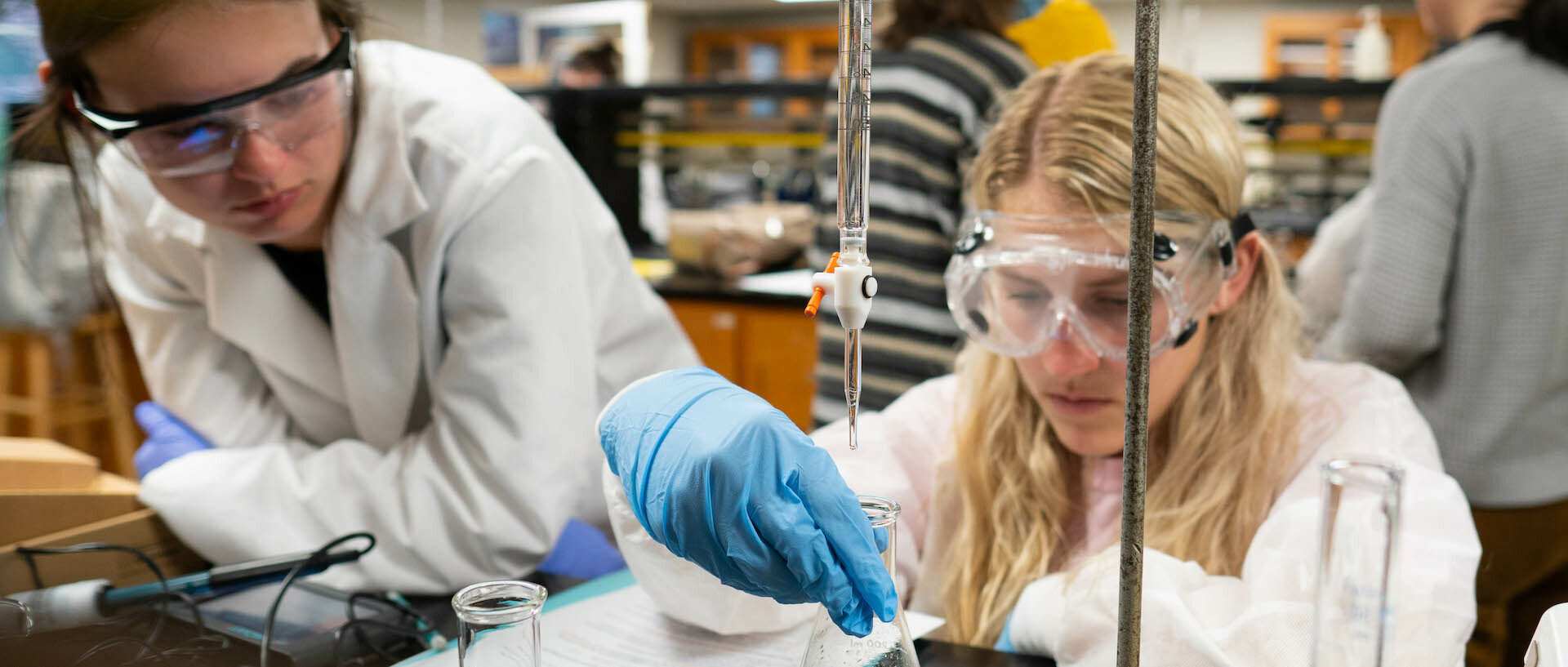
Biochemistry (BS)
Explore the study of life - on a molecular level
Biochemistry is the study of life at the molecular level, bridging chemistry and biology to reveal how living organisms function and interact. At SWU, you’ll explore the chemical processes that underlie everything from cell structure to metabolism, gaining a deeper appreciation for the intricate design of God’s creation. Through hands-on laboratory classes and research opportunities, you’ll learn to analyze, comprehend, and explain key biochemical phenomena—all while integrating a biblical perspective that enriches your scientific understanding.
Whether you dream of working in industry, pursuing graduate or professional studies, or using your knowledge to solve global challenges, a BS in Biochemistry from SWU will set you on the right path. You’ll benefit from small class sizes, personalized faculty mentorship, and a curriculum that emphasizes both technical expertise and critical thinking. Elective courses and independent studies add further flexibility, helping you develop the specialized skills most relevant to your goals.
The Biochemistry (BS) program is approved to receive the Enhanced Scholarship for LIFE Scholarship and Palmetto Fellows.
Graduate Study
- Biochemistry
- Biology
- Chemistry
- Clinical laboratory sciences
- Engineering
- Environmental sciences
- Forensic sciences
- Medicine
Career Paths
- Analytical chemist
- Chemical engineer
- Chemistry teacher
- Crime lab assistant
- Food and drug inspector
- Food technologist
- Forensic chemist
- Laboratory coordinator
- Materials engineer
- Medical chemist
- Quality control chemist
- Petroleum engineer
- Polymer engineer
- Renewable energy engineer
- Research chemist/scientist
- Textile technologist
- Toxicologist
- Water purification chemist
Graduates of the Biochemistry program will be able to:
- Demonstrate mastery of the fundamentals and application of current chemical and scientific theories in organic and inorganic chemistry, physical chemistry, and analytical chemistry.
- Demonstrate technical knowledge by designing, carrying out, recording, and analyzing the results of chemical experiments.
- Locate, comprehend, and communicate about scientific literature, including presenting literature and laboratory findings in oral and written forms.
- Analyze, synthesize, solve problems, and think critically using the scientific method.
- Use modern instruments to interpret infrared spectroscopy spectra, mass spectrometry spectra, and proton NMR spectra of relatively simple compounds, and use UV-VIS spectrophotometers, chromatography techniques, and electrophoresis.
- Apply gravimetric analysis and titration techniques in quantitative analysis.
